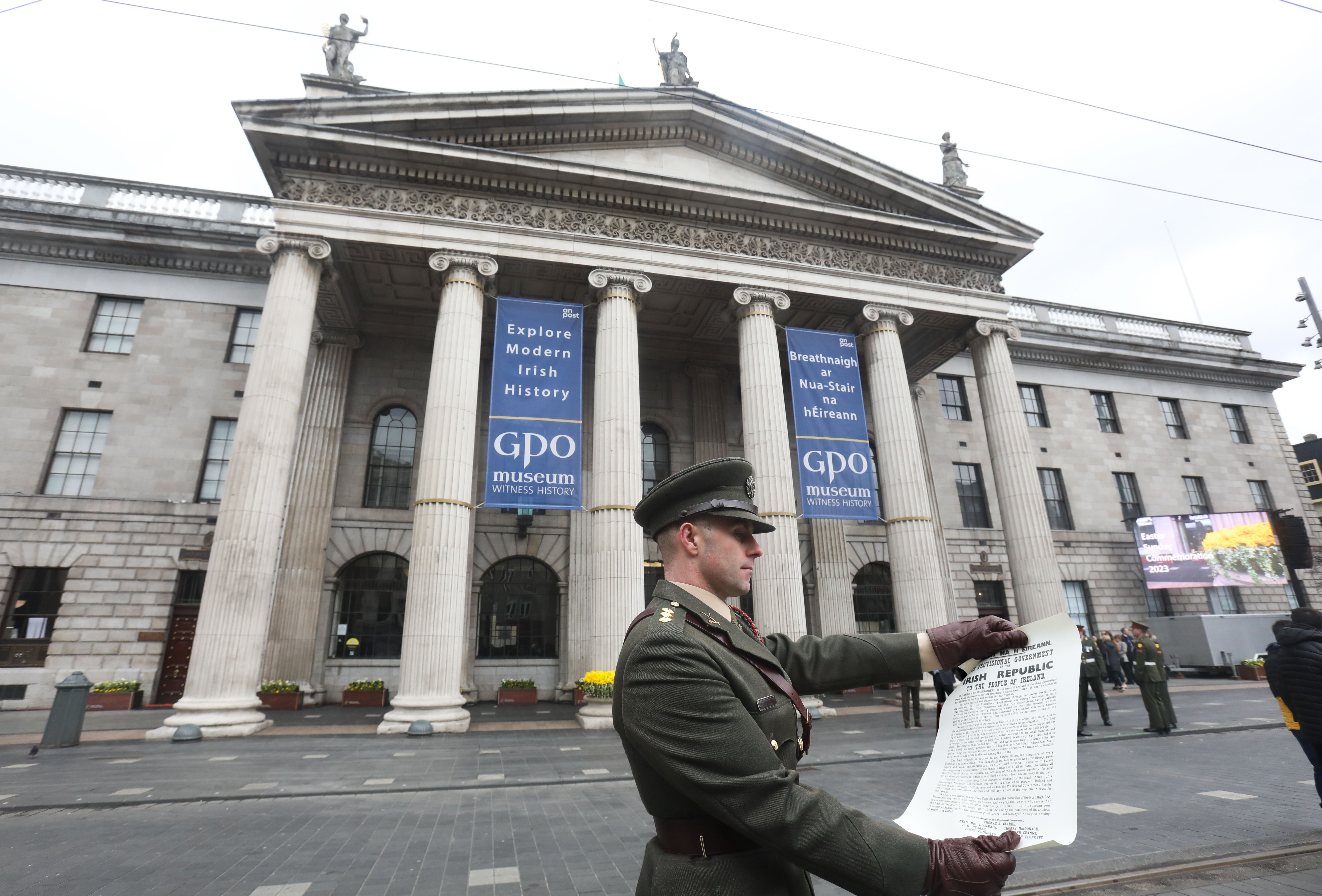THIS Easter weekend O’Connell Street will be closed off in front of the GPO as the Rising of 1916 is officially remembered by the Irish government at the site of the most remarkable moment in Irish history, where men and women, mostly working class Dubliners, knowing they would be militarily defeated and would likely die, declared an Irish republic for men, women and children.
The streets will be pristine, the flag will be proudly raised and the Irish people, and all onlookers, will be asked to join in communal remembrance of a declaration which would cherish all of the children of the nation equally.
Presumably the tents of the homeless will be cleared away and their occupants hidden. The extraordinary food bank run by the Muslim Sisters of Ireland which feeds hundreds at the front of the GPO will be packed up on Friday night. The hungry and the homeless will be invited to suspend their experience to share in the hope of a Proclamation which belongs to us all, but applies only to the selected and the lucky. All while the surrounding revolutionary streets face obliteration from international profiteering 'redevelopers' who propose the replacement of a city’s soul with facades and pretence.
In Belfast commemorations of the Easter Rising will take place across the city, but not officially. Republican Belfast will authentically remember in their local areas. What was once controversial and forbidden is now a sea of young children in bobbly woolly cardigans, hoping for spring but knowing it is freezing; girls’ hair in green, white and orange ribbons; and a proud community respectfully remembering its dead with pride. There will be pageant, and a wolfhound or two.
🔎Did you know that we have an original 1916 Proclamation in Áras Uí Chonghaile?
— Áras Uí Chonghaile | James Connolly Visitor Centre (@JamesConnollyVC) March 27, 2024
🔸Kindly on loan as part of the Pat O’Hagan Collection
See this and more on the James Connolly Experience!
🔗 https://t.co/1eKNsybtGD pic.twitter.com/egVBARvaOZ
But that is not to say that Belfast does not face similar issues of dereliction, deprivation, addiction and homelessness. Far from it. These deep-seated, generational challenges are at times similarly pushed away from collective viewing and consciousness in Belfast too. This city faces endemic disregard brought about by so-called investors who would render our streets of history and built heritage into rubble and identical facades.
Being reminded of the Proclamation is an opportunity to reflect and rededicate to meaningful change. Is the republic envisaged in the 1916 Proclamation, in the midst of a World War, three years after the Dublin Lock Out, less than 60 years after the Great Hunger, still relevant? Yes. All of the solutions to the challenges we face North and South and in all of our cities require a revolutionary approach. An approach based on equality, respect and dignity for all of our citizens and our collective heritage.
Freeing ourselves from London’s influence is one part of the change that is needed, and utterly necessary. But we also need to reclaim the values that render the idea of our citizens living on the streets or in the despair of poverty and addiction unconscionable. International vulture funds buying up full estates and streets of housing and city life to profiteer only sees our cities in dereliction and families living on sofas and in cars.
A new republic, united, cherishing all of our children in statute will change that. Instead of clearing the streets from the challenges that face our Irish nationhood we must face into them, in the spirit of the leaders who took the GPO and led from the front.








